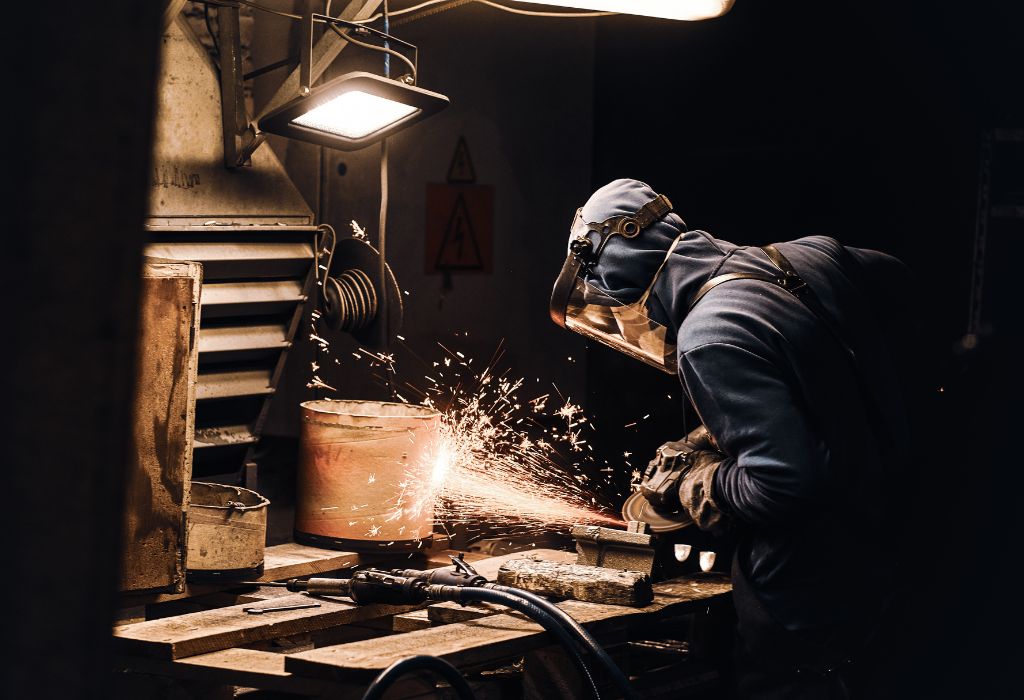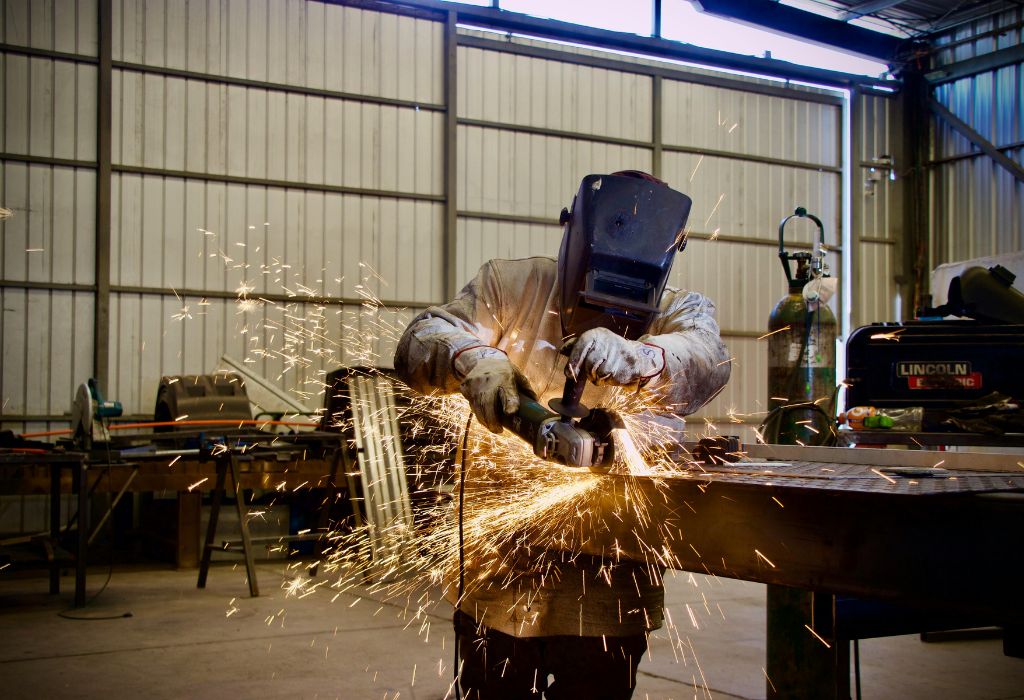The desert sun beats down on a job site in Phoenix as sparks fly from a welding torch. Behind the mask, a question often lingers: how much does a welder make in Arizona today?
For many, the answer feels unclear. Pay can shift depending on city, certification, and whether the work is in a shop, on pipelines, or at a union site.
Conflicting hourly and annual figures across job boards add to the confusion.
Reliable data helps clear the smoke. According to the U.S. Bureau of Labor Statistics, the national median salary for welders in 2024 was about $51,000 per year (BLS).
In Arizona, the state occupational survey shows a median of roughly $25 per hour, or $52,440 annually for welders (OEWS).
These figures place Arizona welders close to the national average, but individual earnings can be much higher.
Skilled trades like pipe welding, structural steel, and union assignments often boost total compensation. Overtime and per diem allowances add even more to the paycheck.
Understanding how much a welder makes in Arizona requires looking beyond one number. City demand, industry sectors, and specialized skills all shift the pay scale.
Phoenix leads the state with higher averages, while mining and energy projects create pockets of premium wages.
This article explores welder salaries in Arizona for 2025 with data-driven clarity. It breaks down pay by city, experience, and specialty, while highlighting factors that increase earnings.
The goal is to give welders and job seekers a clear picture of what to expect in the state’s growing labor market.
The Short Answer: How Much Does a Welder Make in Arizona?
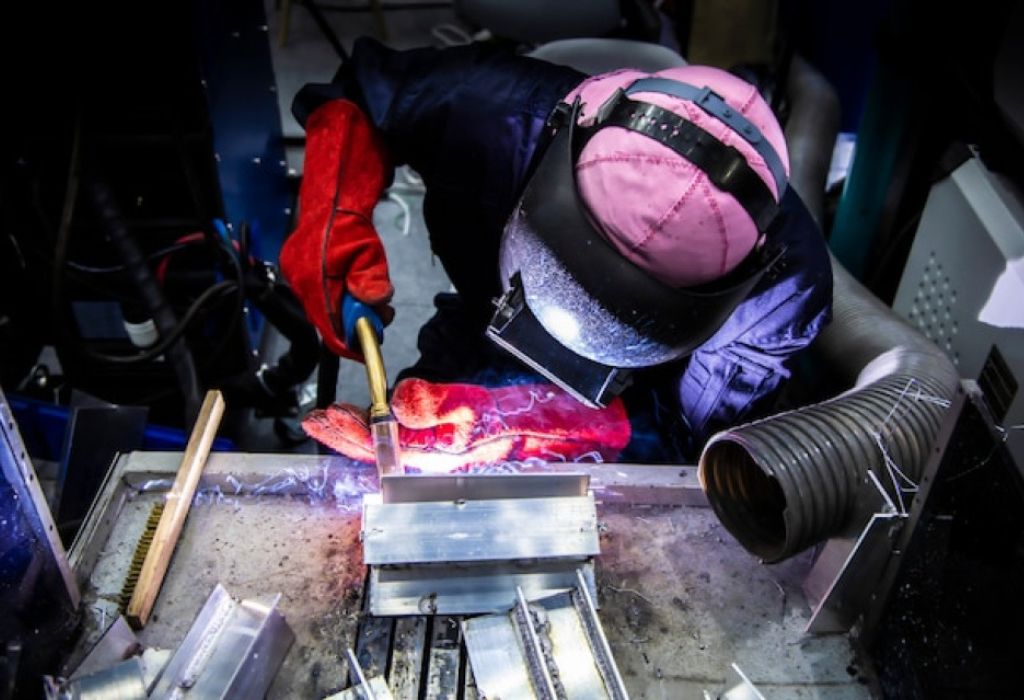
Most welders in Arizona earn between $21 and $26 per hour, depending on experience, city, and industry. Annualized, this equals about $45,000 to $55,000 per year.
According to the Arizona OEWS survey, the median wage for welders is $25 per hour or $52,440 annually, which closely matches the national median (BLS Arizona). Entry-level welders often start near $18–20 per hour, while highly skilled or specialized welders can exceed $70,000 annually with overtime and bonuses.
City location makes a difference. Phoenix and nearby industrial hubs post slightly higher wages than Tucson and smaller towns, reflecting concentrated demand for fabrication and construction.
What is the average hourly pay for welders in Arizona?
About $21–26 per hour, with $25/hr as the statewide median.
What is the typical annual salary?
Around $50,000–$53,000, depending on city and experience.
Is Arizona above or below the national average?
It is roughly on par with the U.S. median of $51,000 annually.
Do top earners break $70,000 per year?
Yes, especially in pipe welding, union jobs, or with consistent overtime.
Where are wages highest in the state?
Phoenix metro and major industrial projects often pay the most.
Pay by City: Phoenix, Tucson, and Regional Hubs
Phoenix leads the market with welders averaging $22–26 per hour. The city’s strong construction and fabrication demand drives higher wages.
Tucson welders earn slightly less, often in the $20–23 per hour range, but defense and aerospace contracts keep demand steady. Smaller cities such as Yuma or Flagstaff may offer lower base rates but sometimes include per diem for travel jobs.
Industrial corridors outside Phoenix show competitive pay. Large fabrication shops and mining projects boost regional wages, especially during peak project cycles.
How much does a welder make in Phoenix?
About $22–26/hr, depending on shop size and role.
Is Tucson lower than Phoenix?
Yes, averages are slightly lower, but defense contracts provide steady work.
Do smaller cities pay less?
Generally yes, but travel allowances often offset the difference.
Where is demand growing?
Phoenix industrial zones and energy projects statewide.
Do remote projects pay more?
Yes, travel and per diem raise effective earnings.
Experience & Credential Ladders: Entry-Level to Journeyman
Entry-level welders often begin near $18–20 per hour. With certifications and a few years of experience, wages rise steadily into the mid-20s.
Journeyman welders typically earn $26 per hour or more. Certifications such as 6G pipe or multi-process proficiency open doors to high-paying industrial roles.
Specializations in TIG, flux-core, or code work also bring premiums. Employers value welders who pass X-ray or ultrasonic inspection consistently.
What does an entry-level welder earn?
About $18–20/hr in most Arizona shops.
What about journeyman rates?
Around $26/hr with strong experience.
Do certifications boost pay?
Yes, especially 6G pipe and ASME code welding.
How fast can pay rise?
Within 2–4 years with consistent skill growth.
Do employers reward inspection-ready skills?
Yes, clean test results often lead to higher wages.
Specialty & Union Roles: Where the Money Jumps
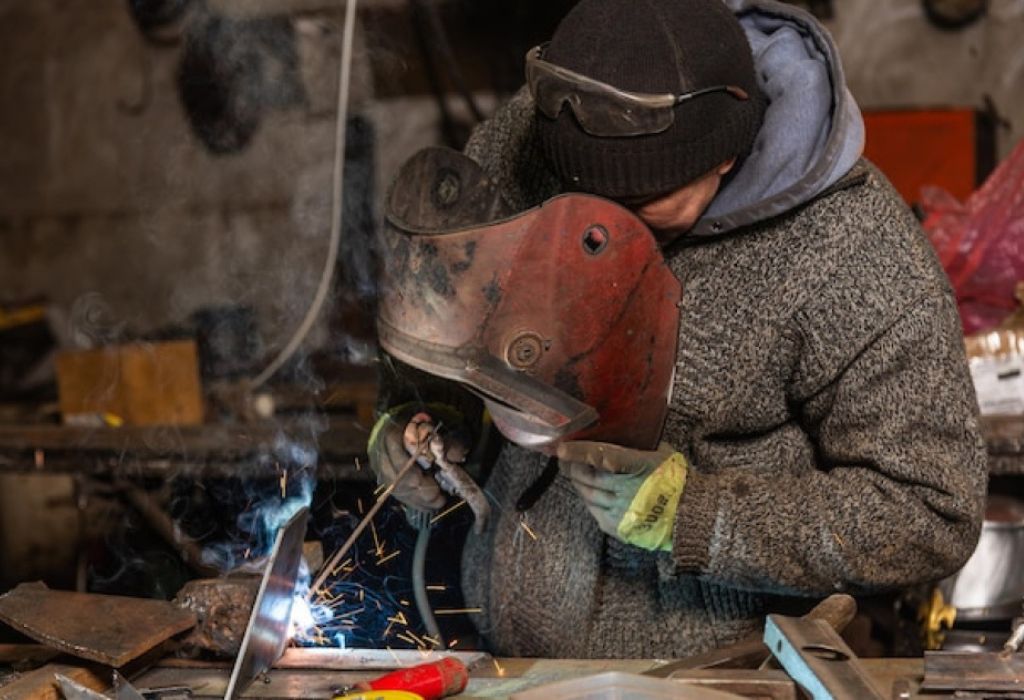
Pipe welding, boilermaker, and union jobs often post higher base rates. Union wage sheets show strong hourly pay plus benefits.
Shutdown projects in power plants or refineries add overtime premiums. Specialty skills in stainless steel, aluminum, or exotic alloys also drive up compensation.
How much does a union welder make in Arizona?
Union base rates average $25–27/hr, plus fringes.
Do pipe welders earn more?
Yes, many reach $30/hr or higher with per diem.
What about boilermakers?
They often command above-average wages.
Are overtime premiums common?
Yes, shutdowns and outages provide extra hours at time-and-a-half.
Which certs unlock the best roles?
6G, ASME code, and multi-process certifications.
Industry Factors: Fabrication, Construction, Mining, Energy
Fabrication shops pay steady rates but slightly lower than field jobs. Field construction and mining projects tend to offer higher wages due to demand cycles.
Arizona’s energy and utility projects create well-paying roles for skilled welders. Construction booms around Phoenix add to consistent opportunities.
Which sector pays the most?
Mining, energy, and large construction projects.
Do fabrication shops pay less?
Yes, but they provide steadier schedules.
Are mining welders in demand?
Yes, particularly in southern and central Arizona.
Do utility projects pay overtime?
Often, especially during shutdowns.
Which industry is growing fastest?
Construction and infrastructure in Phoenix.
Overtime, Shifts, and Total Compensation
Base wages only tell part of the story. Many welders boost income with overtime, night shifts, and weekend work.
Per diem allowances for travel jobs add to total earnings. Benefits such as health insurance and retirement contributions further increase value.
How much can overtime add?
Thousands of dollars annually during busy seasons.
Do night shifts pay more?
Yes, shift differentials increase hourly rates.
Are per diems common?
Yes, especially on remote or industrial projects.
What about benefits?
Health, retirement, and training support real income.
How to calculate total compensation?
Add base pay, overtime, allowances, and benefits.
Skills that Command Higher Pay in Arizona
Pipe welding, TIG on stainless, and multi-process skills raise wages. Employers also value reading blueprints and following welding procedure specifications (WPS).
Non-destructive testing (NDT) knowledge further boosts employability. Safety certifications and OSHA training can also improve pay.
Which skill raises pay fastest?
6G pipe welding.
Does TIG matter in Arizona?
Yes, especially for aerospace and defense sectors.
Do NDT skills help?
Yes, welders who understand inspection standards earn more.
Are soft skills important?
Yes, reliability and safety culture affect promotions.
Do multi-process welders earn more?
Yes, versatility raises demand and wages.
Cost of Living and Take-Home Reality
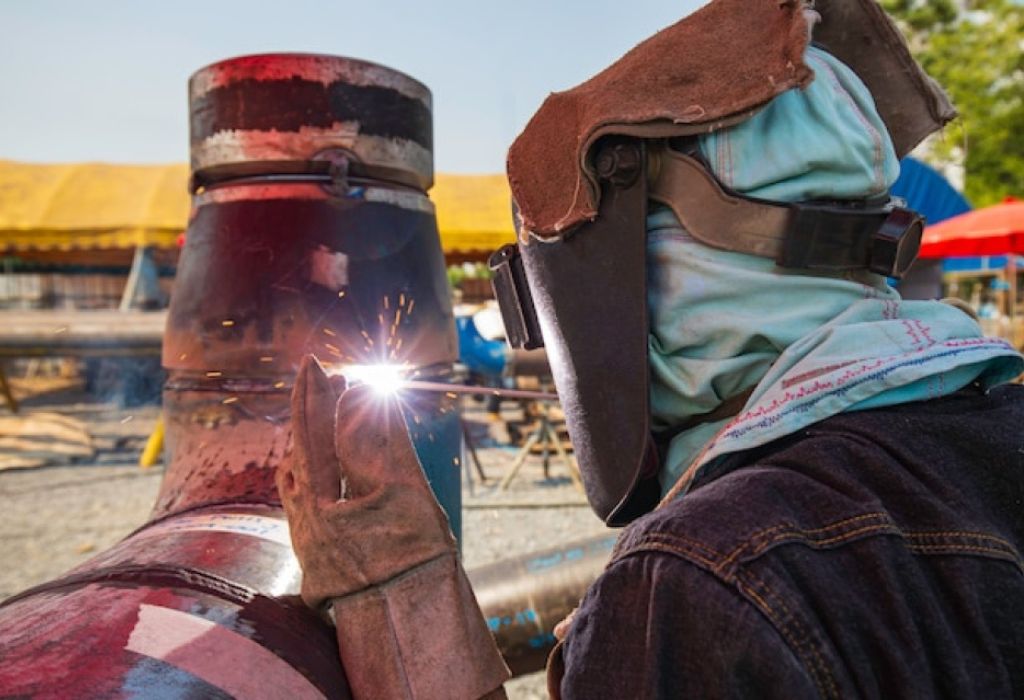
Arizona’s cost of living is moderate compared to coastal states. Phoenix housing costs are rising but remain below California averages.
Take-home pay varies depending on taxes, commuting, and tool expenses. Welders often budget for personal tools not provided by employers.
Is Phoenix expensive?
Moderate, but housing costs are climbing.
Do per diems offset costs?
Yes, travel allowances ease expenses.
Should relocation be considered?
Yes, for higher-paying projects in other regions.
Do tools cut into pay?
Yes, personal investment in tools is common.
How does Arizona compare to other states?
Cheaper than California, similar to Texas.
2025 Outlook: Demand, Schools, and Hiring
Arizona’s economy continues to expand, with demand for skilled trades steady. Welding schools and apprenticeships feed a growing workforce.
The BLS projects moderate growth for welders nationwide, with localized spikes in states like Arizona due to construction and energy projects (BLS).
Is demand rising in Arizona?
Yes, especially in construction and energy sectors.
Do apprentices get hired quickly?
Yes, during project cycles and peak seasons.
Will wages increase?
Likely, where shortages meet industrial demand.
Is training worth it?
Yes, certifications directly boost employability.
What is the long-term outlook?
Steady growth, with strong demand in industrial hubs.
Conclusion
So, how much does a welder make in Arizona? Most earn between $21 and $26 per hour, or around $50,000–$53,000 annually. Specialized skills, union roles, and overtime can push earnings above $70,000.
Wages vary by city, industry, and certification. Phoenix leads with higher averages, while mining and energy projects create premium pay opportunities.
For welders and job seekers, the key is building certifications, exploring specialty roles, and weighing total compensation, not just base pay. Arizona’s welding market in 2025 offers both steady work and pathways to higher earnings.

I’m Darrell Julian, the founder, lead writer, and hands-on welding enthusiast behind ArcWeldingPro.com. With more than 15 years of real-world welding experience, I created this platform to share what I’ve learned in the field, in the shop, and in the heat of the arc.

